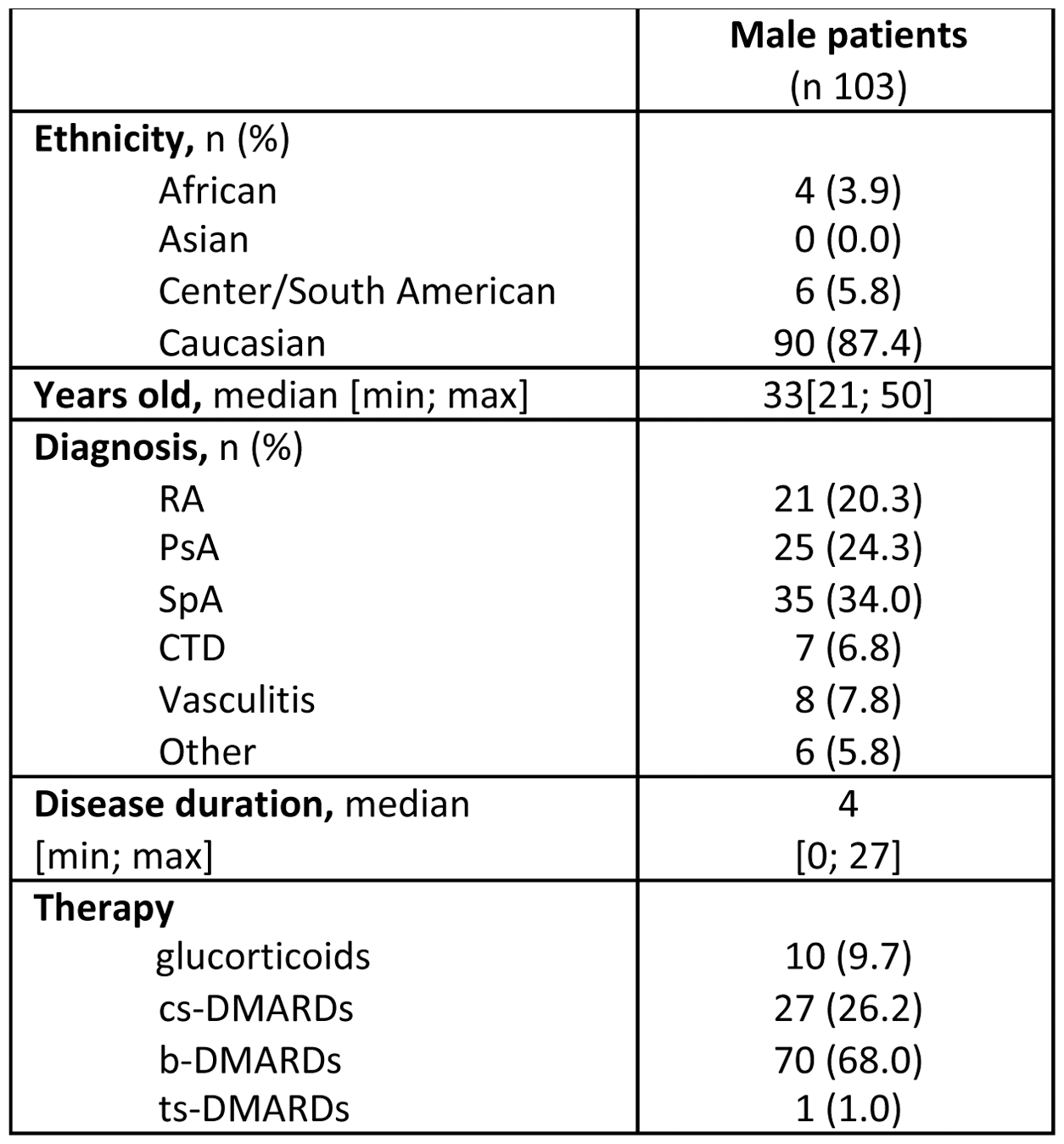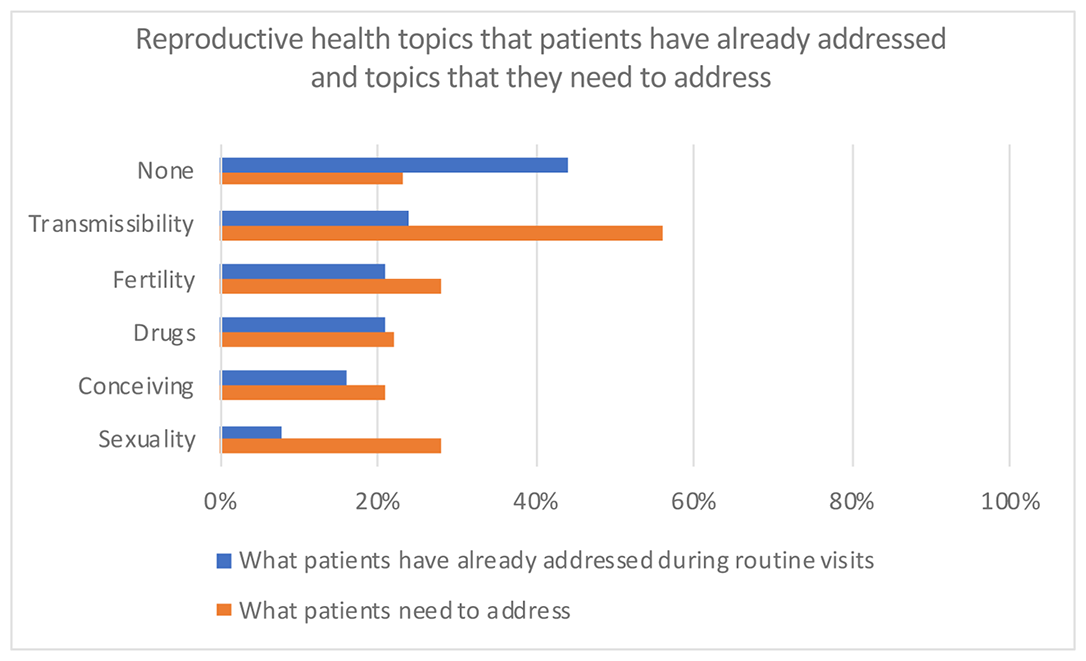

Background: As reproductive health is gathering attention in Rheumatology and all medical fields, the male perspective on the matter is often overlooked as not directly related to pregnancy and lactation.
Objectives: To describe male perception of sexuality, fertility, contraception, conceiving related to their rheumatic disease, and their need to explore these aspects in a dedicated counselling session.
Methods: In this cross-sectional observational study, a survey about reproductive health (sexuality, contraception, fertility, conceiving, pregnancy, lactation, transmissibility) in relation to their disease has been administered to consecutive patients with immune-mediated diseases aged 18 to 50years, attending a Reproductive Health Counselling Clinic. Their need for information about reproductive health as part of a counselling carried out by dedicated rheumatologists (on-site or by televisit) was investigated. In this study the male perspective was analysed.
Results: From January to September 2023, 103 male patients completed the survey (Table 1). 10% of patients noted a changing in their sexuality after the diagnosis, 20% patients thought their rheumatic disease influences their sexuality and 3.9% believed their partner sexual behavior changed after the diagnosis. Regarding contraception, 37.9% of patients affirmed not to use condoms, while 18% had a female partner that used contraceptives, and most patients had never explored the contraception topic with their partner. 10% and 17% of patients reported their fertility may be influenced by their disease or the drugs taken for it, respectively. From our data, 60% were worried about transmissibility of their disease to children. 37% of patients were worried both for the effect that their disease or the drugs taken for it could have on conceiving, respectively. Figure 1 shows which aspects of reproductive health had already been addressed during any visit and which aspects patients needed to address. It is important to underline that 44% of patients had never addressed any reproductive health issue with any physician, while 39% had already discussed these topics with a rheumatologist, 4% with a urologist and 7% with their general practitioner. 37 patients requested counselling, of which 15 have already been carried out (13 on-site visits, 2 televisits). Most of the patients was satisfied by the counselling (80%) and would recommend it to other patients (86.7%). 1 patient has been referred to a Urologist to address infertility issues.
Conclusion: Reproductive health is often overlooked especially in male patients as not directly related to pregnancy or lactation. As almost 50% of male patients had never addressed any of reproductive health related items before (sexuality, fertility, conceiving, contraception, drugs taken for the rheumatic disease), counselling, both in-person or remotely, has proved successful in answering patients’ questions or doubts.
REFERENCES: NIL.
Demographic and clinical characteristics of patients

CTD, connective tissue diseases; PsA, psoriatic arthritis; RA, rheumatoid arthritis; SpA, spondyloarthropathies; b-DMARDs, biological disease-modifying antirheumatic drugs; cs-DMARDs, conventional synthetic disease-modifying antirheumatic drugs; ts-DMARDs, targeted synthetic disease-modifying antirheumatic drugs.

Acknowledgements: NIL.
Disclosure of Interests: None declared.